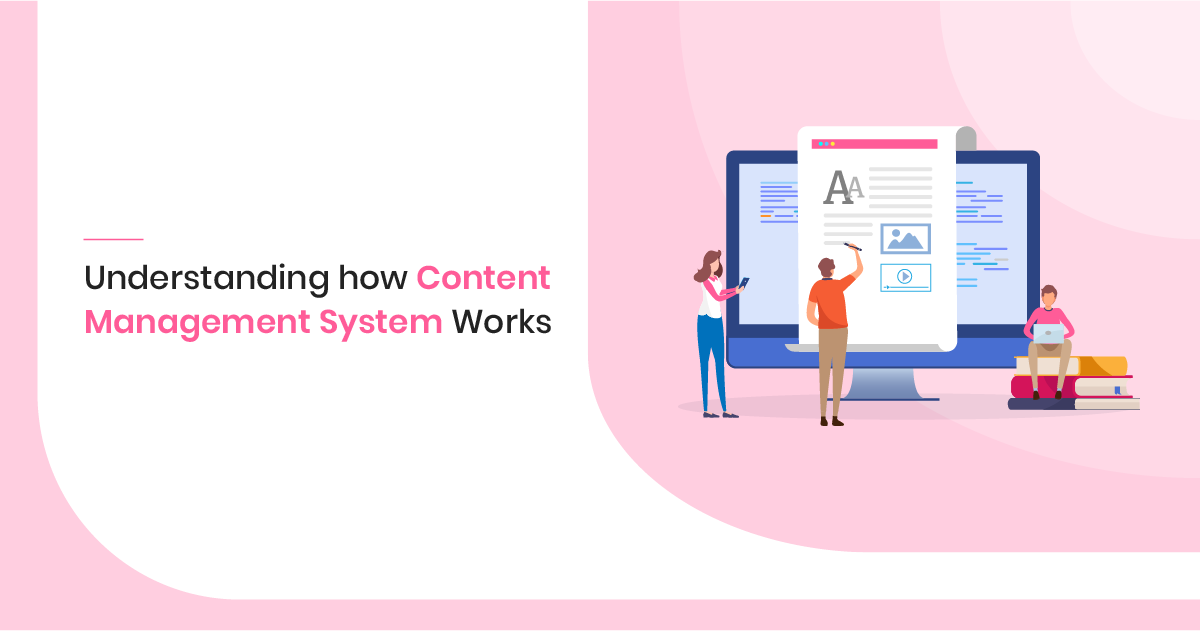We live in a time where content is a prominent digital tool for business. It’s a robust digital marketing asset for brands that want to boost their presence and consumer recognition. However, the challenge of content management isn’t something that most businesses are equipped to handle.
Besides marketing, the content has also become a part of sales, merchandising, and development. However, to become successful in using content for commerce, you have to integrate it properly into your strategies. It’s not exactly a walk in the park, but with a content management system (CMS), it can be.
A content management system is software that aids in creating, modifying, and managing a website’s contents. It’s there to assist you and make your life easier when dealing with your brand’s content efforts. This article will explain how CMS works so you can understand its benefits.
How CMS works
A CMS allows users to manage their website’s content from an internal user interface (UI). It’s an application that enables convenient collaboration between multiple users because it doesn’t require a developer’s help. It’s also designed for multiple users to create, edit, and publish content on a website.
Two main parts of a CMS that help in website creation:
Content management application (CMA):
This part allows you to work with your content without a developer’s help directly.
Content delivery application (CDA):
This acts as the back-end portion of your website that takes the content you input in the CMA and turns it into a working page visible to visitors.
The traditional CMS application used by the majority of websites that currently exist in WordPress. According to a survey published by Netcraft, around 455 million websites are now using WordPress. That means the CMS brand accounts for approximately 20% of all self-hosted websites globally.
There are plenty of other CMS applications out there, and some are not as known as WordPress or Joomla because they cater to large enterprises. An enterprise CMS may come from a paid service for content management solutions or managed services by MDL Technology.

Different types of CMS
Different types of CMS applications emerged over time to adapt to different needs, as digital became first in terms of branding. These are the types of CMS used today:
1. Traditional CMS
Traditional CMS, also known as coupled CMS, is the simplest of all CMSs in terms of general functionality and layout. It connects the back end of the website to its front end, which is the system that delivers the content. All applications for design and customization are also stored in the back end.
You can create your content using a traditional CMS on an HTML editor. The CMS will then display the content according to the CSS you inputted.
2. Decoupled CMS
A decoupled CMS is the opposite of a coupled CMS because the front end and back end are separated. You still create and edit in the back end, but the finished product is transmitted via an API before being published in the separate front-end system. The API connects the content publisher and the content management system.
3. Headless CMS
A headless CMS is similar to a decoupled one, except it doesn’t have a defined front-end system. You can use this type of CMS to publish content on various platforms or any device connected via the Internet of Things (IoT). It’s because it publishes using a web service or an API capable of transmitting content to any system that can access the Internet.
As aforementioned, you can use CMS for different commerce objectives; therefore, you have to choose the suitable platform depending on which aspect you’ll use the content for.
Wrapping up
In a world where content is king, you’ll need to give it a “royal” treatment to utilize it well. You can do just that with the help of content management systems and solutions. They’re everywhere, which makes them easy to find, so you can get your hands on them after reading this article.
Need Any Technology Assistance? Call Pursho @ 0731-6725516




